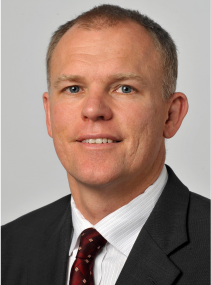 Tumour Stream LeadDr Garret Smith
Tumour Stream LeadDr Garret Smith
What are gastrointestinal cancers?
Upeer gastrointestinal cancers are found in the stomach (gastric) or food pipe (oesophagus). The oesophagus and stomach are part of the upper gastrointestinal (GI) tract, which is part of the digestive system.
Our service
The upper gastrointestinal (UGI) team at the NSCC manages all types and stages of upper gastrointestinal cancer from diagnosis, treatment and supportive care, including assessment of symptoms and side effects.
Patient cases are discussed at a multi-disciplinary team meeting (MDT) to ensure the best possible treatment recommendation is made. The Upper GI team includes surgeons, medical oncologists, radiation oncologists, nurses, pathologists, and radiologists.
Supportive care services include nutrition, social work and psychology.
Multidisciplinary team (MDT) and clinics
-
MDT occurs Tuesdays fortnightly
-
Clinic occurs Thursdays weekly in NSCC
Diseases
Gastro cancer experts

